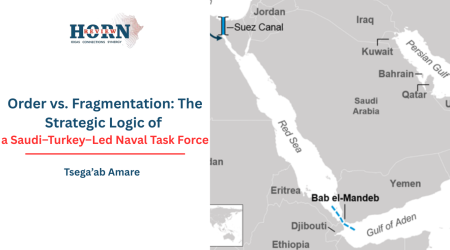
19
May
Between Alliance and Ambivalence: Israel’s Place in Trump’s Middle East Strategy
The American-Israeli alliance has always been distinguished by its dual character-rooted both in strategic interests and a unique special relationship. In the early years, particularly between the Eisenhower and Kennedy administrations, the relationship oscillated between divergence and convergence. Eisenhower’s tenure (1953-56) was marked by skepticism toward Israel, viewing support as potentially costly to U.S. interests. However, by the late 1950s and into the 1960s, Israel’s value as a strategic asset in a hostile region became clear. Especially as American public opinion and visions of shared values grew more influential in shaping policy the partnership deepened. Over the decades, this alliance has been reinforced by deep American-Jewish involvement in U.S. politics, a shared imperative to contain regional threats, and the balancing act between supporting Israel and maintaining ties with oil-rich Arab states.
This historical foundation set the stage for the highs of the Trump-Netanyahu partnership during Trump’s first term. Their bilateral relations reached its peak when the U.S. embassy moved to Jerusalem and the signing of the Abraham Accords-normalizing relations between Israel and several Arab states. Trump’s administration was seen as giving Israel unprecedented latitude, including legitimizing territorial annexations and withdrawing from the Iran nuclear deal, moves that aligned closely with Netanyahu’s priorities.
The unprecedented era in Jerusalem was shadowed by undercurrents of tension years before. One such strain of friction was Netanyahu’s surprise announcement that the State of Israel would annex parts of the occupied West Bank. This act had been seen as an undermining move by those who called Trump’s deal, the deal of the century, and these had left the White House frustrated. However, Trump and his White House believed that Netanyahu had overstepped and jeopardized the broader peace initiative. This marks the first visible crack in their relations.
Furthermore, with the advent of the second term of Mr. Trump, the landscape no longer appeared the same as during the first. Initially, the relationship was exceptionally close: Netanyahu was the very first foreign leader to visit President Trump after his inauguration, praising him as being the greatest comeback in history. Both leaders were behind some strategic operations while engaging in controversial discussions, including those about Palestinian resettlement. Over time, the cracks, however, began to open wide.
Personal dynamics further complicated matters. Trump never seemed to forgive Netanyahu for congratulating Joe Biden on his 2020 election victory while Trump was still contesting the results, viewing it as a betrayal after all he had done for Israel. This personal distrust lingered into Trump’s second term, subtly influencing the tone and substance of U.S.-Israel interactions.
In the weeks leading up to his latest Gulf trip, Trump made a series of moves that left the Israeli prime minister increasingly sidelined. Most notably, Trump reopened negotiations with Iran over its nuclear program, signaling a willingness to accept a deal that might allow Tehran to retain some civilian nuclear capabilities, a sharp departure from Israel’s demand for total dismantlement. Trump also agreed to a ceasefire with Yemen’s Houthi militants that, while halting attacks on Red Sea shipping, did not address their assaults on Israel, and he brokered a deal with Hamas to secure the release of the last known American hostage in Gaza, bypassing Israel entirely. It leaves Jerusalem frustrated and vowing to defend themselves alone. Mr. Trump’s emissaries are still trying to broker a deal to stop the war, which has only deepened the divide with Israel, since Trump’s vision centers on a peaceful Middle East built on economic cooperation.
Trump’s visit to the Gulf, pointedly skipping Israel, crystallizes these changes. The decision to visit Saudi Arabia, Qatar, and the UAE, while omitting Jerusalem signals a realignment of U.S. priorities. This move grants Gulf States greater autonomy to pursue their own agendas, including rapprochement with Syria and recalibrated stances toward Iran, without Israeli constraints. It also reflects a U.S. willingness to engage directly with actors Israel views with suspicion, such as Hamas and the Houthis, often without Israeli input or endorsement.
Adding to Israeli frustration, Trump’s administration began to decouple Saudi Arabia’s pursuit of a civil nuclear program from any requirement to normalize relations with Israel, a precondition that had been set by President Biden. This move, together with Trump’s outreach to Qatar-long viewed with suspicion in Israel for its ties to Hamas-further signaled a recalibration of U.S. priorities in the region.
Perhaps most unsettling for Israel has been the U.S. shift on Syria. For over a decade, Washington had isolated Damascus due to Bashar al-Assad’s war crimes. Now, with Gulf backing, Trump initiated steps to lift sanctions and normalize relations with a restructured Syrian leadership that includes former rebels and remnants of the Assad regime. For Israel, this re-legitimization of Damascus-without ironclad guarantees against Iranian influence-threatens its strategic depth and shows its diminishing leverage. The Gulf States, meanwhile, see Syria’s reintegration as a way to counter both Iranian and Turkish ambitions and to open up lucrative reconstruction opportunities, aligning with Trump’s transactional approach but sidelining Israeli interests.
Another is the Abraham Accords, once hailed as a diplomatic triumph, is also showing signs of strain. While formal ties between Israel and the UAE, Bahrain, and Morocco persist, the Gaza conflict and shifting Arab public opinion have eroded the substance of these relationships. Saudi Arabia, which was on the verge of normalization, has now reversed course, insisting on tangible progress for the Palestinians before moving forward.
While Israel continues to receive robust U.S. military support and retains operational freedom in Lebanon, Syria, the West Bank, and Gaza, Netanyahu finds himself with fewer diplomatic cards to play. The once unshakeable alignment with Washington is now punctuated by moments of divergence-over Iran, Syria and the contours of regional diplomacy-leaving Israel more isolated and failing to be a central architect of Middle East policy. These are among the pushing factors for Israel to broaden its horizons.
Its efforts to diversify its alliances beyond the Gulf-amid U.S. diplomatic sidelining and shifting American priorities-make the Horn of Africa a critical but contested arena where overlapping ambitions risk escalating rivalries. Israel’s engagement with Ethiopia exemplifies this strategic turn. The recent visit of Israel’s foreign minister marked a milestone in institutionalizing a multidimensional partnership. Ethiopia’s landlocked status and its need for reliable Red Sea access have fit together with Israel’s desire to prevent the Red Sea from becoming dominated by Arab or Iranian proxies.
In addition, should Israel expand its partnerships with Ethiopia, Somaliland, and other Horn states to secure Red Sea access and counter Iranian and Houthi threats, it risks clashing with Turkey’s interests, especially given Ankara’s close ties to Somalia and its opposition to Somaliland’s independence claims. This rivalry could lead to heightened diplomatic tensions and proxy competition, as both nations seek to influence the region for controlling the Bab el-Mandeb Strait. Moreover, Israel’s growing footprint may complicate Turkey’s delicate balancing act with Egypt, another regional player wary of both Ankara and Israeli ambitions.
That being said, a deeper Israeli presence in the Horn could accelerate a multipolar contest involving Turkey, Egypt, Gulf States, and global powers, intensifying the strategic complexity of the Red Sea corridor and influencing the broader balance of power in Northeast Africa and the Middle East.
By Yonas Yizezew,Researcher,Horn review










